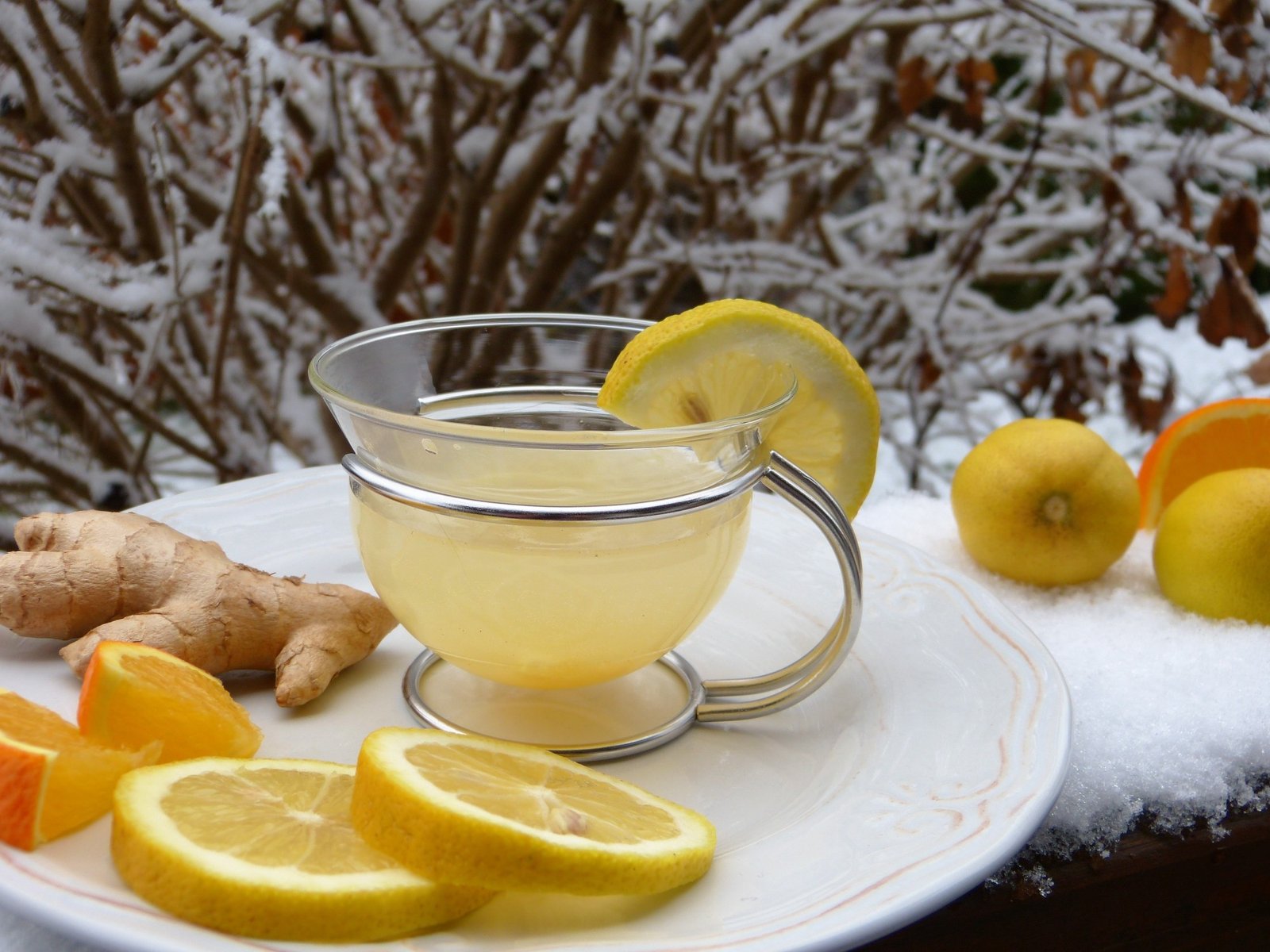
6 Ways to Boost Your Immune System Naturally
The immune system is a clever design, set up to protect your body from illness and disease. When a foreign body or infection tries to attack your body, your immune system will kick in and begin to fight.
However, your immune system needs a variety of nutrients to work properly. Without them, you leave your body unprotected. It’s essential to get a variety of nutrients in your diet but you may need supplements to boost immune system power.
Here are some natural supplements that can help you to keep your immune system working at full capacity.
1. Vitamin C
Vitamin C is known to boost the immune system, or at least provide some protection from respiratory illnesses. Vitamin C is an anti-oxidant, so it’s no wonder that people tend to reach for the supplements during cold and flu season.

It’s important to know that the body can only absorb so much vitamin C at once. So, if you want to boost your vitamin C intake, it’s often better to do it via your diet. Eating fruits like kiwi, strawberries, and citrus fruits- all of which are packed with vitamin C- will ensure you’re getting enough for your immune system.
If you do want to take a supplement, it’s often better to get a recommendation from your doctor. Your doctor will be able to recommend a suitable dosage. Rather than take the whole dosage at once, it’s better to take small amounts throughout the day so you’re sure your body absorbs them.
2. Vitamin B
Vitamin B is more important than its given credit for. Although vitamin C is well known for boosting the immune system, it wouldn’t work without the presence of vitamin B. The body needs vitamin B to create immune cells.

Vitamin B is known as a complex vitamin because so many of its components are essential for maintaining overall health. To boost your immune system, vitamin B6, B1, and B2 are all paramount.
If your immunity is low, it could be because you have a vitamin B deficiency. Ask your doctor to perform a test so you know for sure. A vitamin B deficiency can occur because of a poor diet, medications you’re taking, and more.
If you’re not suffering from a deficiency, you can get a vitamin B immune booster by eating certain foods. For instance, tuna, salmon, chicken, green vegetables, and fortified cereals are all rich in vitamin B.
3. Vitamin D
Unfortunately, it’s fairly common to have a vitamin D deficiency at least once in your lifetime. A deficiency in vitamin D can lead to an increased likelihood of infection. A recent study found that a boost in vitamin D resulted in a lower incidence of influenza infections.
You can boost your vitamin D levels in three different ways. Many people already know that exposure to the sun, in safe measures, can increase vitamin D intake for the body. However, there are also certain foods that contain vitamin D.

Eating fortified dairy products, cooked egg yolks, and fish, like tuna and salmon, are all great ways of boosting your vitamin D. If you aren’t able to get vitamin D out of your diet, taking supplements could be the solution.
4. Trace Elements
Trace elements are minerals present in the body in small quantities. These include minerals like iron, manganese, zinc, and selenium. They are all vital for the proper function of the immune system.
It’s common for someone to have a deficiency in these minerals during a bought of the common cold or flu. If you lose your appetite or suffer from sickness and diarrhea, your levels of these minerals can deplete.
Your doctor may advise taking a supplement to build up your supply of minerals while you’re sick. These supplements can often be taken in
liquid form as well as tablet form.
5. Probiotics
Probiotics are often referred to as good bacteria. They are live micro-organisms that have health benefits for the body. They can be consumed by eating certain foods. Probiotics are linked to good gut health and the gut is linked to keeping the immune system running properly.
You can get a probiotic supplement in the form of yogurt or yogurt drinks. These probiotic supplements often include lactobacillus,
Bifidobacterium, and Saccharomyces- all of which can help the immune system.
You may need a boost in probiotics after a bought of sickness. Any illness that affects the gut, like food poisoning or the flu, can destroy the good bacteria in your gut and you’ll need to work to replace it.
6. Echinacea
Echinacea is a herbal supplement that has links to boosting the immune system. Although research is vague on the exact benefits of Echinacea to the immune system, the herbal remedy has been used as an alternative medicine for centuries.
For anyone who prefers herbal remedies to over the counter supplements, Echinacea could be an excellent choice. You should always consult with your doctor before regularly taking any herbal supplements.
As a herbal supplement, it can be taken in tablet form or even drunk as a tea.
Things to Consider
Supplements aren’t magic pills and shouldn’t be considered as such. Supplements should only be taken under guidance from a medical professional. This is especially important if you’re taking any form of medication.
Natural supplements can have an adverse effect on medications prescribed by your doctor. For example, anyone with kidney stones or using medication specifically for the kidney should avoid taking vitamin C supplements.
It’s also vital to remember that if you do begin taking natural supplements, it can take up to 3 months for your body to see any benefit.
Supplements aren’t meant to be a quick fix. It takes long-term commitment to boost your immune system.
Other Ways to Boost Your Immune System
Food
Finding the best and most natural ways to boost your immune system will mean you can stay as healthy as possible, for as long as possible. Other than supplements, there are other ways to naturally boost your immune system.
The first thing you can do is to eat a variety of healthy foods. You can make sure your variety is big enough by tracking the color of the foods you’re eating. Eating every color of the rainbow will ensure you have a variety of vitamins and nutrients to boost your immune
system.
For example, when you make a salad to eat at the office, include foods like red and green peppers, tomatoes, cucumber, and a banana for dessert. Add leafy greens, corn, and carrots as a side dish for evening meals.
Water
It’s essential to stay hydrated throughout the day. Most people don’t drink anywhere near the amount of water they should on any given day. It’s even more important if you’re living in a warm climate.
Drinking plenty of water allows your body to produce lymph fluid. This fluid is needed to help your immune system function as it should.
You can drink water in a variety of different ways.
However, you should avoid drinking too much caffeine throughout the day. Drinking ten cups of coffee to consume the right amount of water is not as good for you as drinking ten glasses of flavored or sparkling water.
Sleep
Getting the right amount of sleep every night is paramount to your overall health. When you don’t sleep properly, you may find it more difficult to function throughout the day and complete daily tasks.
The same can be said for your body. Just as you find it more difficult to compose an email, your body finds it more difficult to protect you and has to work extra hard to get the job done.
When your body isn’t working to its full capacity, your immune system could leave you susceptible to infection. The more rest you get, the easier it will be for your immune system to function.
It is recommended that adults get at least 7 hours of sleep every night and has been suggested that women require more sleep than men. You can find out how much sleep you need with a sleep calculator.
Supplements to Boost Immune System: What Is Right For You?
Choosing the right supplements to boost immune system function will be different for every individual. Of course, you could take a simple multivitamin supplement but it’s often better to find out if you have any deficiencies.
In order to do that, you’ll need to schedule a visit to your doctor and discuss testing your vitamin and mineral supply. Take a look at some more of our health and fitness blogs for more information on boosting your health.




